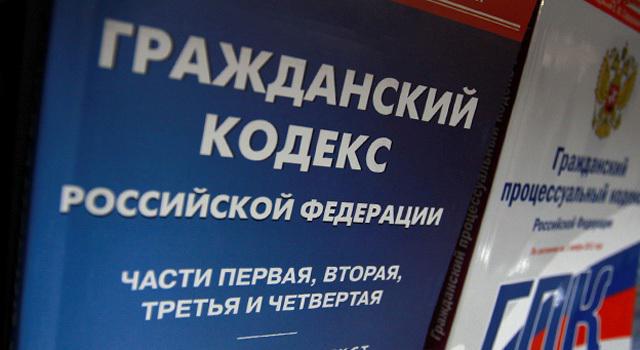Article 1142 of the Civil Code of the Russian Federation will be considered as useful information. She points to heirs of the first stage, as well as some features of inheritance, which will have to be taken into account constantly. Otherwise, you can get confused who and after whom gets the property and for what degree of kinship. Therefore, it is worth a thorough study of modern Russian legislation. This article will be able to clarify all the features and nuances associated with the inheritance and priority thereof. After all, as a rule, initially the property will be distributed only between close relatives. Who belongs to them? And what features of this process are worth knowing?
Close
What does article 1142 of the Civil Code of the Russian Federation say? The thing is that there can be a lot of diverse heirs and relatives. Here are uncles and aunts, and sisters and brothers, and many more are related to relatives. And who is the first person to inherit property?
Fortunately, there are not so many of them. Here, according to modern law, only spouses (husband / wife), children, and also the parents of the testator are included. To assign anyone else to this category of recipients of inheritance, according to Art. 1142 of the Civil Code, it is impossible. Although, in general, grandparents, sisters with brothers, and grandchildren are also considered close relatives by law. But this is a completely different concept.
Grandchildren
Nevertheless, it is not uncommon in Russia that grandchildren receive inheritance from grandparents. They, if you look at paragraph 2 of this Articles of the Civil Code of the Russian Federation, also attributed to the first priority.
But they get their shares not by law, but by right of representation. So, if the inheritance is left to the grandchildren, then it is divided between them equally. Only citizens who are deprived of inheritance rights for one reason or another cannot claim property. Plus, according to the idea, descendants do not inherit property in those cases when the testator died before the opening of the inheritance.
It can be very difficult to understand. Therefore, as a rule, if grandparents want to leave an inheritance to their grandchildren, they try to write gifts. Then, after their death, problems with the division of property are not observed. So, speaking of grandchildren, the transfer of inheritance by law is not very relevant.
Practice
It is also worth paying attention to the commentary on the article. It plays a very important role, since it indicates the numerous features of the process under consideration. Namely, inheritance. Families are not always created and remain whole and complete. There are both divorces and illegitimate children appear. Therefore, it is worth looking at what art. 1142 of the Civil Code of the Russian Federation in full on inheritance and first-order heirs.
As practice shows, most often the main part of the heirs under the law are precisely those who are assigned to the first priority. But all the rest, as a rule, receive their shares by testament or by gift. Quite a normal practice. In general, a deed of gift is a very good way of sharing property so that, after the death of the testator, the citizens "do not gnaw their throats" for each other.
Crown of celibacy
Art. 1142 of the Civil Code of the Russian Federation (or rather, a commentary on it) indicates that children born to a married couple fully inherit everything that belonged to legal representatives during their lifetime. Only now more and more often it turns out that children are born in a civil marriage. And how in such cases do they receive an inheritance?
If the birth certificate does not contain information about the father (the most common cases), then there will be no inheritance from the biological dad.Will get only what is available to mom. It is this practice that takes place in Russia.
Just as art. 1142 of the Civil Code of the Russian Federation "Heirs of the first stage", such a position is unfair. And from a legal point of view, it is wrong. So, somehow you can deal with this phenomenon.
The old man and the statement
The thing is that the children who were born before the decree of the Presidium of the Supreme Soviet of the USSR in 1944 (July 8) without marriage, but with an appropriate record in the registry office about the father, will inherit everything that both mother and father have. A phenomenon that is almost not observed, but in the legislation of the Russian Federation still takes place.
Also, Article 1142 of the Civil Code of the Russian Federation “First Stage Heirs” indicates that paternity can be established by means of a statement jointly written in the registry office on behalf of the mother and father of the child. If the mother is incapacitated, she was deprived of parental rights, or even died, then the father himself writes a statement. To do this, you must obtain permission from the guardianship authority or guardian. If he is not, then to establish paternity should go to court.
Plus, pay attention: if there is no joint application from parents in the registry office, but the child was born in a civil marriage, the mother is able to file a lawsuit in court to establish paternity. A common phenomenon for which you have to pretty prepare.
Features of paternity
But all the features do not end there. Art. 1142 of the Civil Code of the Russian Federation with comments contains some special rules for recognizing paternity (and sometimes motherhood too).
What features play an important role? For example, if after a divorce or death of a man who was married to a woman who gave birth to a child, more than 300 days have passed, then this citizen will automatically be recognized as the father of the baby. An exception is cases where the opposite has been proven. Practically not found in practice.
Marriages are sometimes recognized as invalid. How to be then? Everything is very simple - invalidation in no way affects the rights of the child. He will inherit property from both his mother and father.
Not related
Often there are situations in Russia in which children are raised by stepfathers and stepmothers. Of course, children should also inherit from them. But only in a special order.
Firstly, the deprivation of parental rights from citizens does not cancel the right to inherit from the child. That is, in any case, the baby will have the opportunity to inherit property even from the one who was deprived of parental rights. This is a normal phenomenon, which is not so rare.
Secondly, in the presence of a stepmother or stepfather, the right to inherit property remains with the children only when there has been adoption. Otherwise, step-children cannot be heirs, claiming the first property. But the issue of adoption is considered by the guardianship authorities and the registry office at the request of a citizen. As soon as the adoption of the adoption takes effect, the child will be able to count on inheritance. And when this process occurs after the death of legal representatives, whose inheritance the children had the right to claim, this opportunity is not canceled.
About spouses
An important role is also played by spouses in matters of inheritance. At the death of the husband / wife, the inheritance is left to the surviving spouse. After all, these are the heirs of the first priority. The main thing is that the marriage is registered. Or recognized by the court as valid, if any civil marriage until July 8, 1944. Important: after this date, it must also continue.
It is necessary to distinguish between the termination of marriage in connection with the death of a person or because of the recognition of him dead through the court from divorce. In the first case, you will claim the inheritance, even if after the unfortunate incident a new registered union took place.
If the marriage was declared invalid, the spouses will not be able to inherit property from each other. They lose this opportunity. But for children this rule, as already mentioned, does not apply.These rules are also indicated by the article of the Civil Code of the Russian Federation under consideration.
Disenfranchised
Please note that the age of parents and children does not play a role in resolving inheritance issues. In addition, children do not lose their order of succession, even if parents are deprived of the right to raise them. These are the rules. But parents easily lose the right to inherit from the children. Deprived of parental rights, mother and father, as well as those who were recognized as not fulfilling their parental obligations, are unworthy heirs.
Sometimes forced deprivation takes place. For example, a parent's illness. In such cases, he is not deemed unworthy. When adoption is canceled, stepmothers and stepfathers are not called up as heirs of the first stage.
According to law
According to Art. 1142 of the Civil Code of the Russian Federation, an obligatory share according to the law will be assigned to the grandchildren of the testator if at the time of opening the inheritance the parents who could act as heirs are not alive. In other words, when grandparents outlive their children. Rather rare phenomenon.
As already mentioned, in such circumstances, the shares of the heirs are obtained equally. And more precisely, then as much as their parents would have expected in life. These are the rules and regulations implies, according to Art. 1142 of the Civil Code of the Russian Federation, acceptance of inheritance. To understand them is not so difficult.
Priority
But do not forget that the inheritance can sometimes be distributed among other relatives. Articles 1142-1145 of the Civil Code of the Russian Federation indicate by what principles inheritance will occur. Those who are primarily involved in the process, we have already learned. What's next?
For example, article 1143 talks about the heirs of the second stage. These include sisters and brothers (siblings), as well as grandparents. Both from the side of mother and from the side of father. But inheritance of this kind takes place when the testator does not have relatives of the first stage.
But in article 1144 those who can be called the heirs of the third "degree" are indicated. There are not so many citizens. Sometimes your property will be fully claimed by the law of an aunt and uncle. In other words, brothers and sisters of parents. It doesn’t matter, family or consolidated. True, such cases are extremely rare. Indeed, for this there should not be other relatives belonging to the previous order.
Subsequent heirs are indicated in the article under the number 1145 of the Civil Code of the Russian Federation. If there are no applicants for the inheritance up to and including the third stage, then other relatives will be considered. The fourth stage of kinship is great-grandmothers and great-grandfathers, the fifth - children from nephews and nieces (blood-related), cousins. After will be great-grandchildren, cousins, as well as "similar" aunts and uncles. It's all. As you can see, Art. 1142-1145 of the Civil Code of the Russian Federation will help to deal with all the features of inheritance rights. If you carefully study them, then no problems will arise. Only in practice, as already mentioned, the property is divided mainly among parents, spouses and children.
